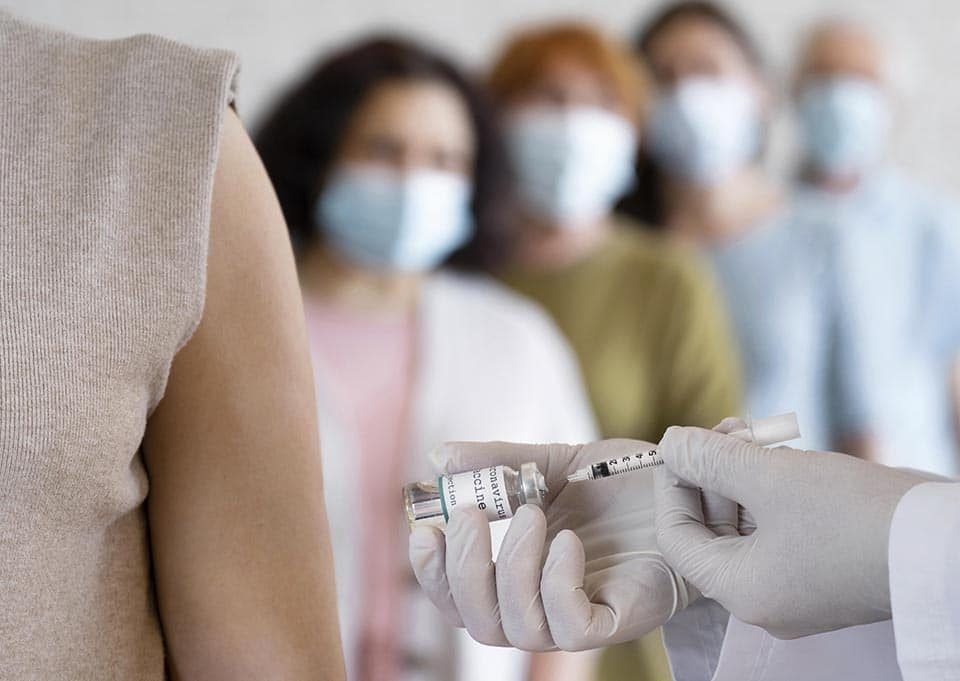What is the Difference Between Seasonal Allergies and COVID-19?
Allergies are not considered comfortable or easy to deal with. They might bewilder you because you cannot be sure fully if you have COVID-19 or your typical allergies. Therefore, allergies can even be scary during a worldwide epidemic. The COVID-19 epidemic has compelled many individuals to pay more attention to their health. Allergy season has become a constant issue for people with allergies. When you find symptoms like a cough or itchy eyes, you might wonder, “Is it COVID-19 or allergies?” This is a valid worry. It is critical to figure out the difference between COVID-19 and allergies.
This article will help you distinguish the difference between allergies and Covid-19.
Differentiate COVID-19 and Allergies
There are similarities in symptoms related to allergies and COVID-19; however, these two are very different health concerns.
COVID-19 is a type of virus that spreads quickly from one person to another, but allergies do not spread. Allergies are the results of your immune system’s natural response to an allergen, such as dust, in your environment.
How To Prevent Allergies?
The most effective strategy to reduce the chance of having seasonal allergies is to prevent exposure to known allergens. When pollen levels are high, remain indoors. Close windows and doors if you are sensitive to pollen.
Using a cotton face mask may also help to guard against seasonal allergies. Some bigger pollen particles can be avoided by wearing a mask. Tiny pollen particles, on the other hand, will be capable of passing through a mask. It’s also vital to clean your facemask after each usage since pollen bits might get inside it.
Don’t be hesitant to speak with your doctor if you think you have COVID-19 signs or symptoms. Keep in mind that adopting preventative actions might help you stay healthy.
Do I Have Allergy or COVID-19?
COVID-19 and allergies show similar symptoms. Before you start panicking, you need to understand and determine if COVID-19 or allergies cause your symptoms. Here are some factors that can help you decide:
Recent contact with a COVID-19 patient
If you have been in contact with a person who contracted COVID-19 and you have COVID-19 symptoms, you should be checked and tested.
Experiencing fever, cough, or shortness of breath
Common signs like fever, cough, and shortness of breath commonly appear among patients diagnosed with COVID-19. If your body exhibits any of these symptoms, you should consider being tested by a doctor. This is highly crucial if you have been in contact with a COVID-19 patient.
Fever signs are not associated with seasonal allergies. However, symptoms of allergies, such as a fever of 100.4 or higher, should prompt you to get tested for COVID-19 or seek medical attention.
The distinction between an allergy cough and a COVID-19 cough may be indistinguishable. Both can cause a dry cough. COVID-19, on the other hand, does not usually induce a “wet” cough, whereas allergies can.
Keep track of your seasonal allergy
Search your mind:
- Do you experience seasonal allergies this time of year?
- Do you experience these symptoms every time you have allergies?
If your response is “yes” to these questions, your chances of having COVID-19 should be reduced, particularly if you don’t have a temperature or a fever.
If you don’t generally suffer from seasonal allergies or if your signs are unusual, you should be concerned. You should consider being checked for COVID-19.
It is not really easy to say whether you have seasonal allergies or COVID-19. You need to examine your symptoms, recent encounters, and personal medical history. If you have any doubts, contact your doctor and share your concerns.
Considerations for Allergetic People during the COVID-19 Pandemic
Similar indications of COVID-19 and allergies might cause further concern during allergy season. There is no data that those with allergies are more susceptible to COVID-19. However, that doesn’t imply you should forsake infection-prevention measures. Keep wearing a mask, maintain social distance, avoid large gatherings, and maintain proper hand hygiene. Masks may even effectively safeguard you from particle exposure, which may result in better allergy symptoms.
Is COVID-19 Vaccination Recommended for People with Allergies?
Allergy sufferers should acquire the COVID-19 vaccination. There is no indication that those who have a history of seasonal allergies are more susceptible to vaccination responses. The vaccination will assist you in avoiding acquiring COVID-19 or making you very unwell if you do get it.
People who should not get the vaccination against COVID-19 are those who have had serious reactions to vaccine components in the past. For example, Pfizer/BioNTech and Moderna vaccines include polyethylene glycol (PEG) or polysorbate, which can bring negative responses to certain persons. Consult your doctor before scheduling the immunization if you have a history of serious adverse reactions to vaccines.
Medical authorities do not advise individuals with a history of severe vaccination responses to avoid getting the COVID-19 vaccine. Rather, they advise doctors to keep an eye on patients for 30 minutes to see if any symptoms develop. In addition, facilities, where the COVID-19 vaccination is administered, should be equipped to address severe allergic reactions.
COVID-19 Testing Near Me in Las Vegas
In Las Vegas, the Southern Nevada Occupational Health Center performs antibody and PCR tests. For almost 15 years, the SNOHC has provided Occupational Health Services in Las Vegas. We are now on your side in the face of the COVID-19 epidemic. For further information, please contact us at (702) 381-3989. Fill out the form on the right side to schedule an appointment.




